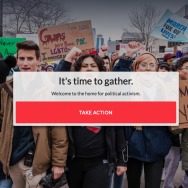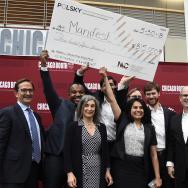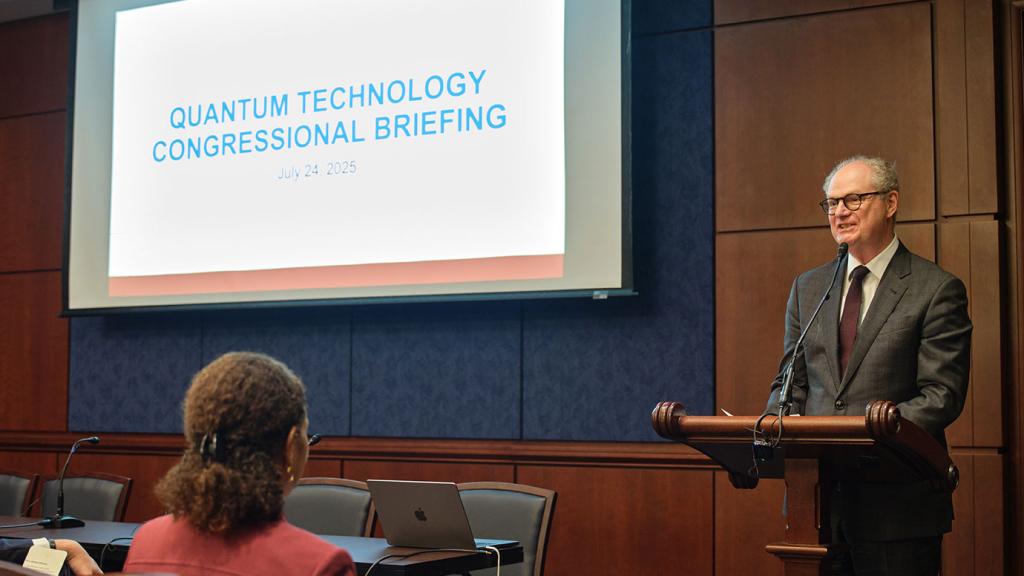When Jake Mikva wanted to empower millennials to vote, he found a generational problem with the way information was dispersed.
Traditional strategies candidates used to target voters weren’t speaking to young people like himself: “We’re not going to see your TV ads or receive your mail. You’re not going to knock on our door if we live in a condo or a high rise [apartment], and we don’t have landlines or pick up the phone,” said Mikva, who graduated in 2017 from the University of Chicago’s Booth School of Business.
Millennials typically move around more, he said, and are more likely to live in cities and only carry a cell phone. His answer? Creating stories and videos users can see—and relate to—when browsing social media.
Mikva is the founder and CEO of GoodWerk, a registered political action committee that is trying to bridge the divide between millennial voters and political campaigns.
“We create digital content to empower millennials in the political process and encourage giving to progressive candidates,” said Mikva, who interned for Hilary Clinton’s presidential campaign in 2016.
GoodWerk honed the concept as a finalist in the 2017 John Edwardson, ’72, Social New Venture Challenge. The SNVC is the social impact track of the Edward L. Kaplan, ’71, New Venture Challenge, the University of Chicago’s business launch program run by Chicago Booth’s Rustandy Center for Social Sector Innovation and the Polsky Center for Entrepreneurship and Innovation.
“The Social New Venture Challenge was a great vehicle to test out an idea,” the 30-year-old said.
Now in its second year, GoodWerk creates multimedia campaigns, often humorous, designed for sharing where young people actually communicate. The content plays into millennial nostalgia and current pop culture references to engage voters and solicit small donations.
With millennials now the largest voting bloc, Mikva is certain tailored content can encourage the generation born between 1981 and 1997 to go out and vote. But behind the videos is real data on candidates voting records and views conveyed in a way that speaks to young voters.

Getting young people involved in politics
Politics is in Mikva’s blood. In 1998, the Mikva Challenge was launched in honor of his grandfather Abner Mikva, a former Chicagoland congressman and federal judge. The Mikva Challenge is a nonpartisan nonprofit that works to get school-age students active in the political process. Nearly 10,000 young people in Chicago, Washington D.C. and California have participated in the Mikva Challenge, and 88 percent of those participants are registered voters, as opposed to 53 percent of 18- to 29-year-olds nationwide.
While GoodWerk is focused entirely on attracting millennials, it’s a nod to his late grandfather’s vision.
“He would find it encouraging,” Mikva said.
This election season, for example, GoodWerk has put out a popular easy-to-understand voter guide that speaks to young voters. GoodWerk also created content around four Illinois-area candidates after looking at polling data and candidate platforms. For example, a video to promote an Illinois congressional candidate was a play on a Parks and Recreation episode. A canvas tote bag, a millennial favorite, was designed with a “Run Like a Girl” logo to back another Illinois Congressional candidate. Mikva estimates the initiatives have reached 5 million people and raised $25,000 for candidates.
“We want to change the way campaigns talk to young people,” said GoodWerk’s digital director George Miller.
Supporting social ventures on campus
Mikva has stayed connected to the University. In 2017, he was one of two Booth students to receive a Tarrson Social Venture Fellowship, which Booth’s Rustandy Center awards to provide funding and other support to graduating University of Chicago students and recent alumni who are committed to growing a venture tackling a social or environmental problem.
Through the fellowship, Mikva received $25,000, mentorship and a vote of confidence from the Rustandy Center.
“We believe that anything we can do to help students turn their passion into a full-time social enterprise is a net gain for the social entrepreneurship ecosystem,” said Will Colegrove, senior associate director of the Edwardson Social Entrepreneurship Program at the Rustandy Center.
After November elections, Mikva will work on what’s next. GoodWerk has raised about $300,000 from small donors, which is data he can use to work to shift part of the venture into a digital consultancy that works with political candidates to attract millennials.
“We are looking to build a brand around talking to young people about political campaigns and having fun with it,” he said.









